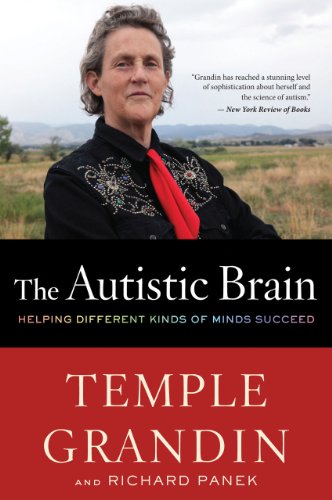Apparently it’s a thing. You can even find information about it online. And I feel sure it is present in cats, horses and other animals as well. Who would’a thought?
Although officially retired from animal communication, I did work with a dog recently where the issues underlying her behavior patterns and personality quirks had eluded trainers, behaviorists, communicators, and certainly her people for years. I will call her Allie.
Allie was nothing like her predecessors of the same breed, in fact she was the total opposite. They had all had many traits in common, including a great affection for cuddling, a happy nature, easy trainability, a love for all people and exploring new territory. These were not Allie’s strong points. As you can imagine, her folks were perplexed by how different she was and were often at a loss as to how to handle her or what to expect from her in the future.
Some of the most common traits exhibited by individuals who are diagnosed with autism or are said to be “on the spectrum” are an aloofness, unpredictable behaviors and responses, patterns of “stimming” (self-stimulation), a lack of or inability to use language, and an over-sensitivity to stimuli. Translated to canine behavior, at least in Allie’s case, those manifested as avoidance (of affection, people, not wanting to be touched or petted, being leashed, and sometimes even of taking a favorite treat); hiding in or retreating to a safe, dark place under the bed; interacting with her humans only when she initiated it; and inconsistency in her response to and success with training.
I mulled on the case for a few days before sitting down to try to have an actual conversation with Allie. I allowed myself to be open to her while doing mindless chores, like washing dishes, so that I could get a feel for her and just “dip my toe” into the energy field of her situation off and on. It was during this informal process that it suddenly dawned on me like a bolt of lightning: “This dog is autistic!”
As a counterpoint to her *dis*-array of behaviors and personality traits, when I finally tuned into Allie more formally, it was clear to me that she was incredibly smart. She had felt my psychic comings and goings so was ready, willing and able to be clear in her communications long enough to give me and her folks some good feedback on what she needs and why she is the way she is. She had picked up from her people, right from the first, how confused they were by how different she was and, at times, how downhearted they became when they could not shower her with the affection they had always bestowed lavishly on their canine companions. She showed me how her brain worked, her sensitivities, and how some of her knee-jerk reactions to certain things had been formed by how she was handled even before weaning. Certain stimulation had felt like an assault and had embedded certain responses in her already-different neurological system that would be lifelong.
She “got it.” Allie understood why we were talking and how this might help both her and her family be able to re-form their expectations about the relationship. She felt she had been a disappointment to her family, which I assured her she had not—just that they wanted to understand her better. The outcome of the session was that Allie asked her people to try to accept her for exactly who she is, now that she had shared with them her specific state of being, while understanding that she loved them deeply and was committed to them, even if she was unable to show it in ways more familiar to them.
From my own* education about and observations of autism (*I have a degree in special education, language and learning disabilities), it is apparent that the associated out-of-the-ordinary behavior patterns cannot really be changed. Certainly, each case calls for its own selection of therapies and education to enhance and create the best life possible for the subject and his or her caretakers, but the brain cannot be expected to shift to fit into whatever norm others might deem desirable.
And so it is with Allie and her family, who accepted her explanations unconditionally and with relief at having a better understanding of her. Allie is an amazing individual in her own right and showed me briefly that she has a clear vision of how she and her mom and dad are together to learn from one another… perhaps new things and in a different way.
Much can be learned about autism from Temple Grandin’s books about how being autistic has shaped her life and how she has applied her personal experience with autism to animals.

Recent Comments